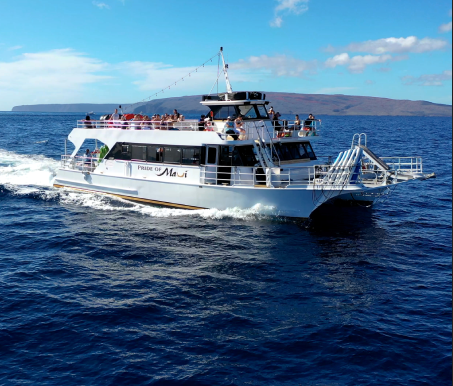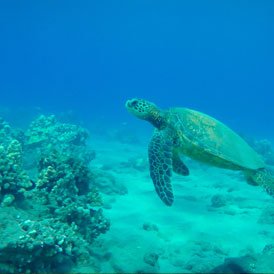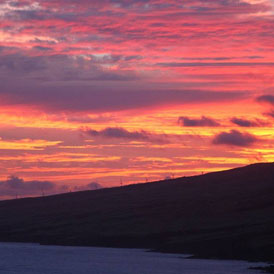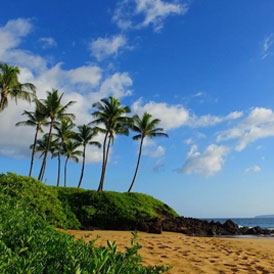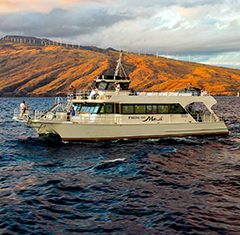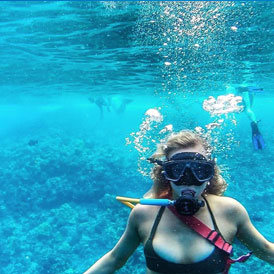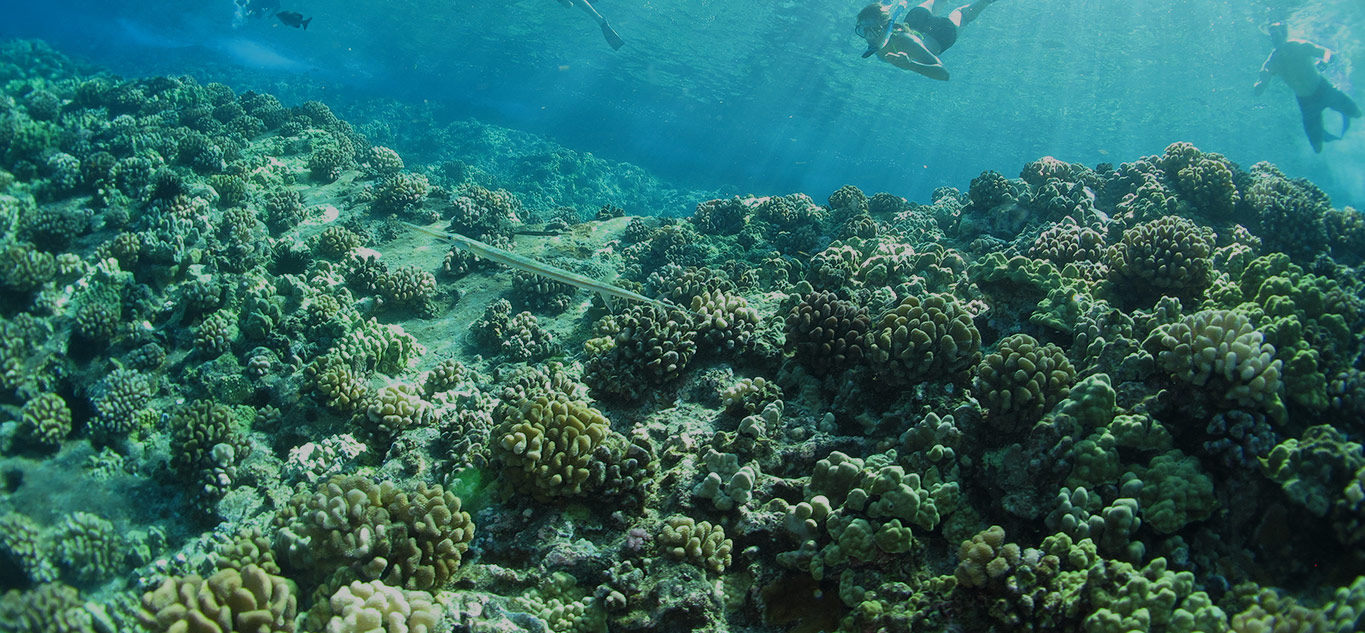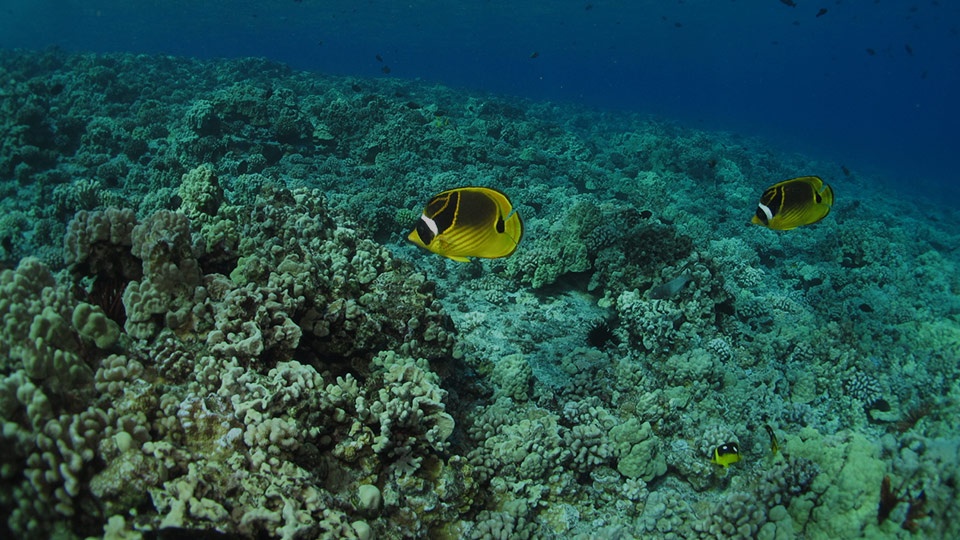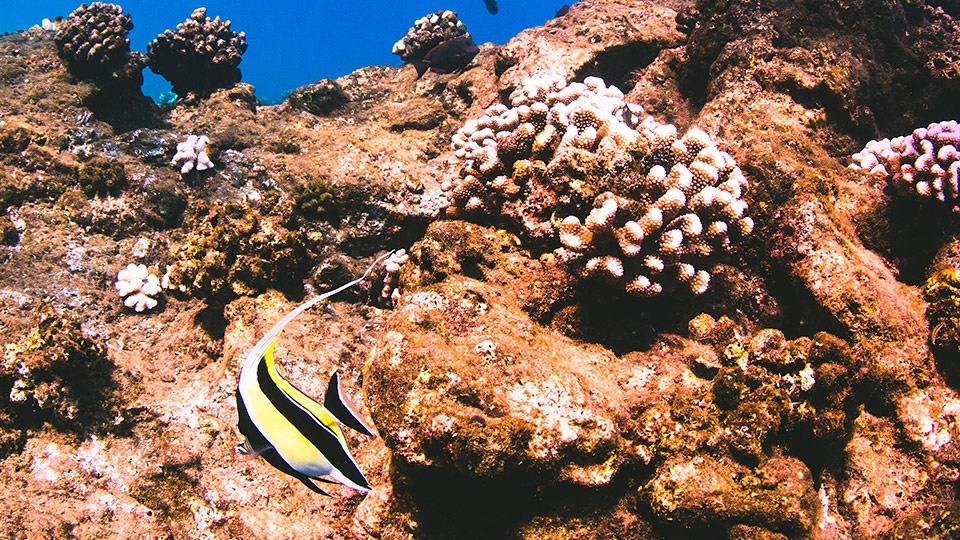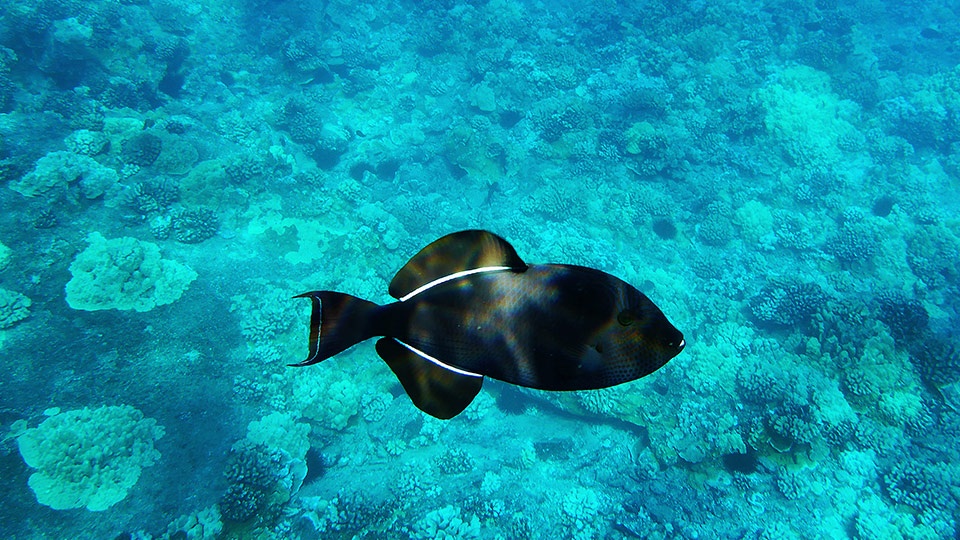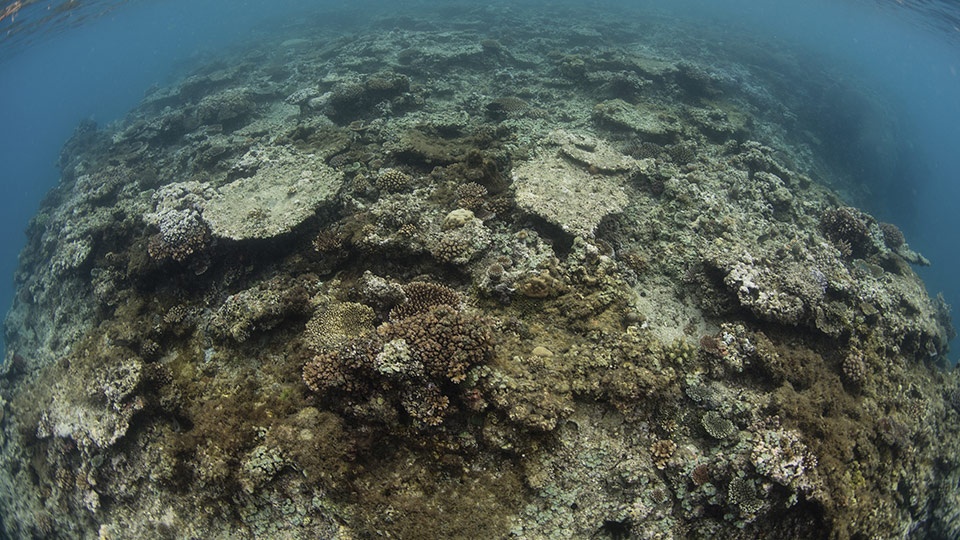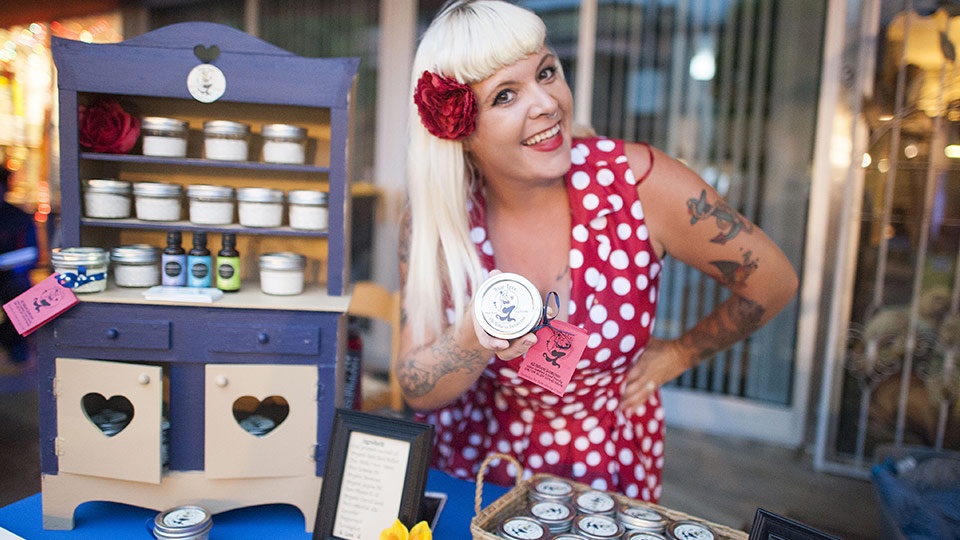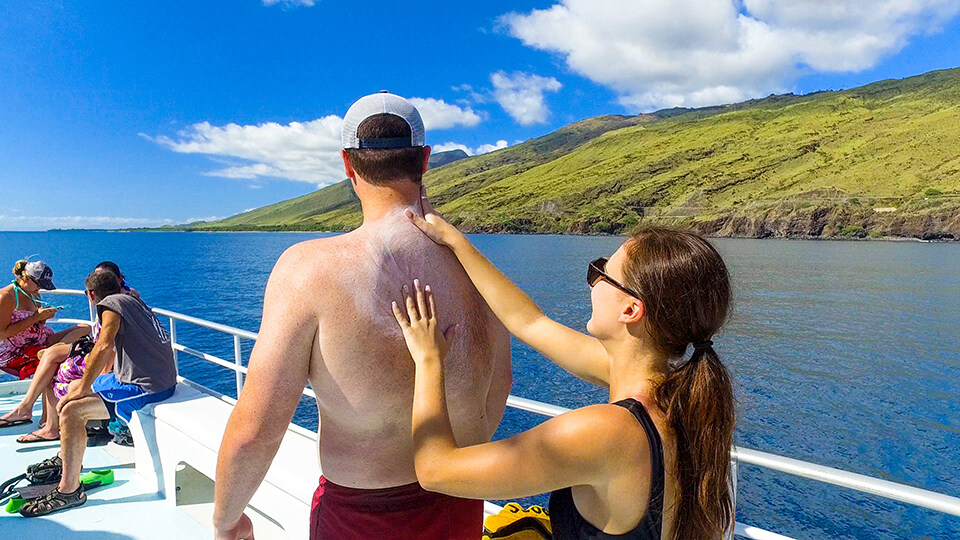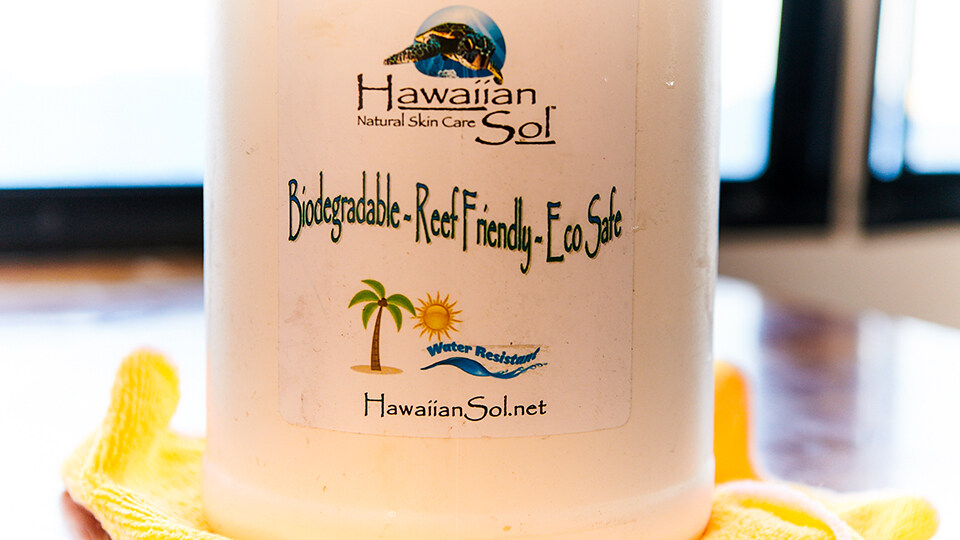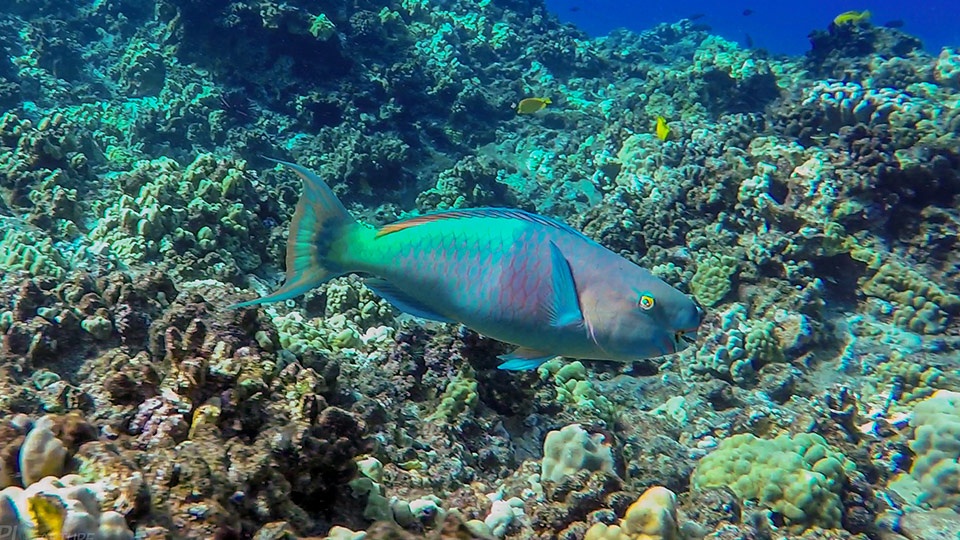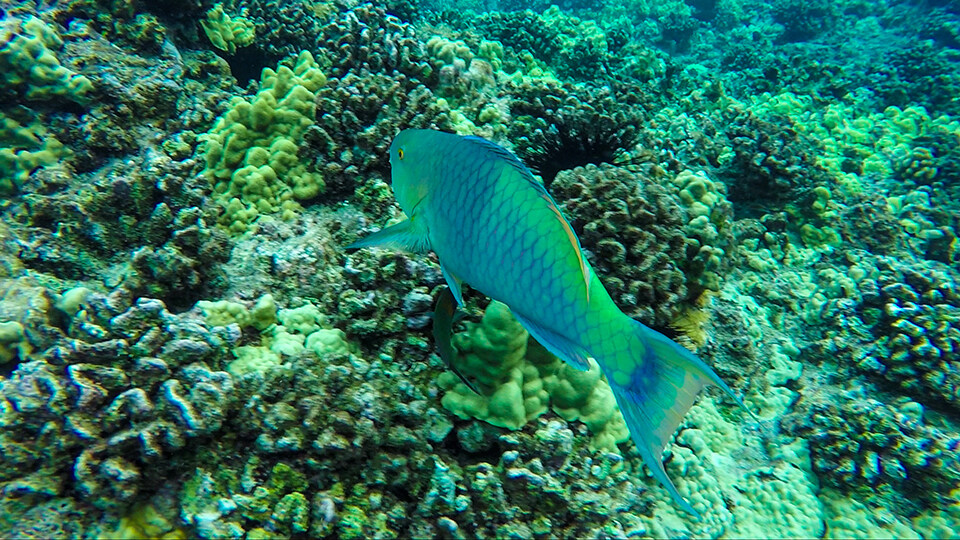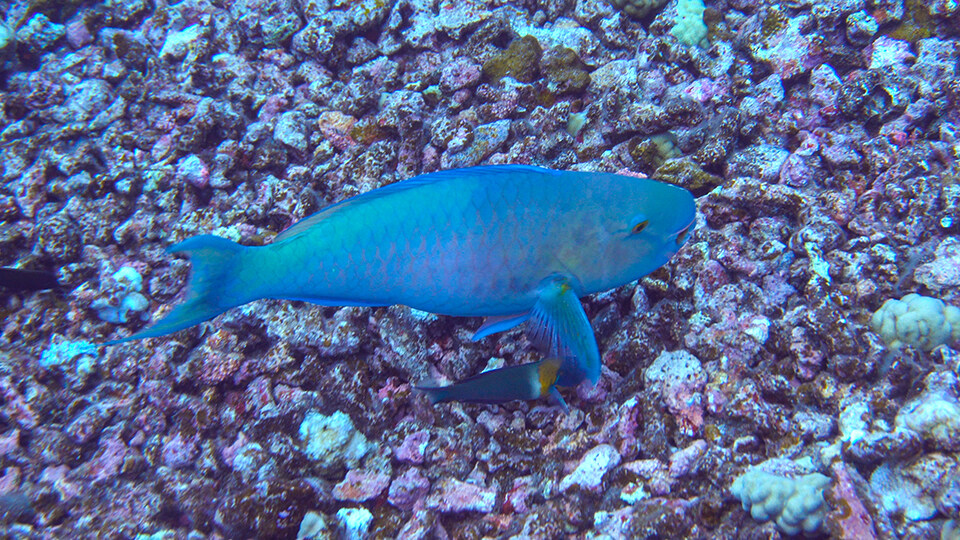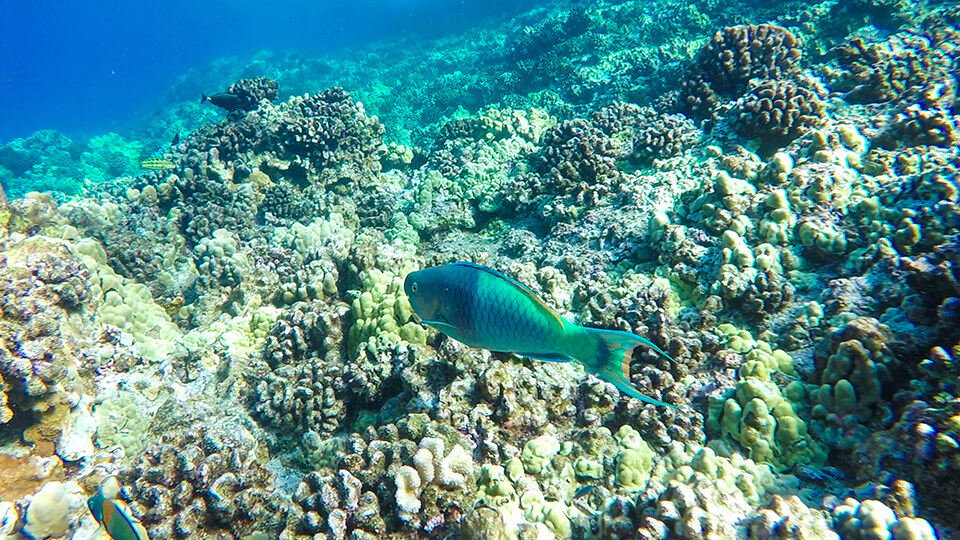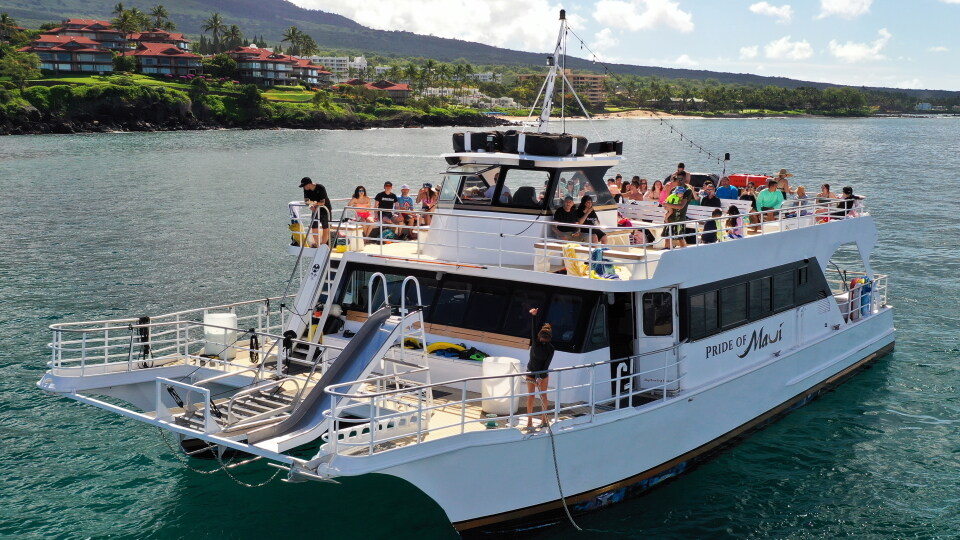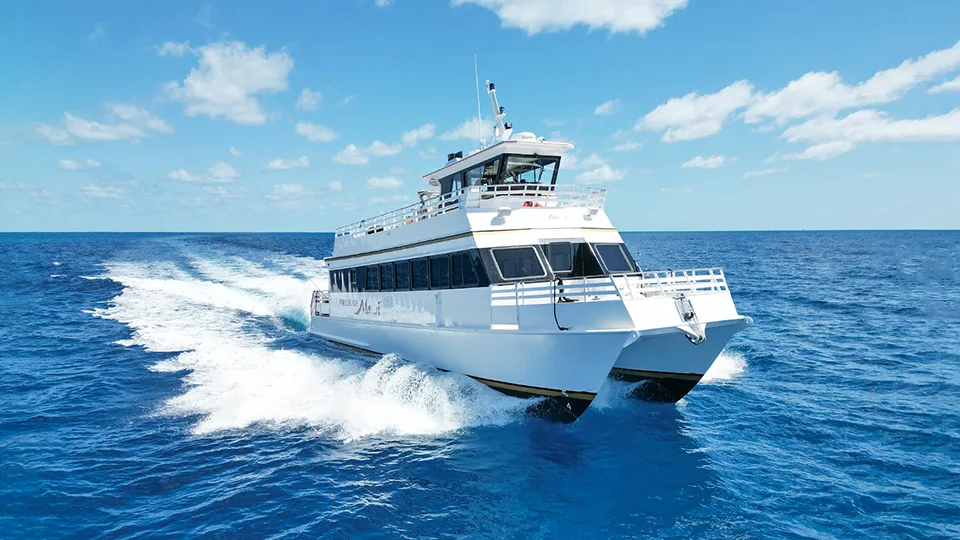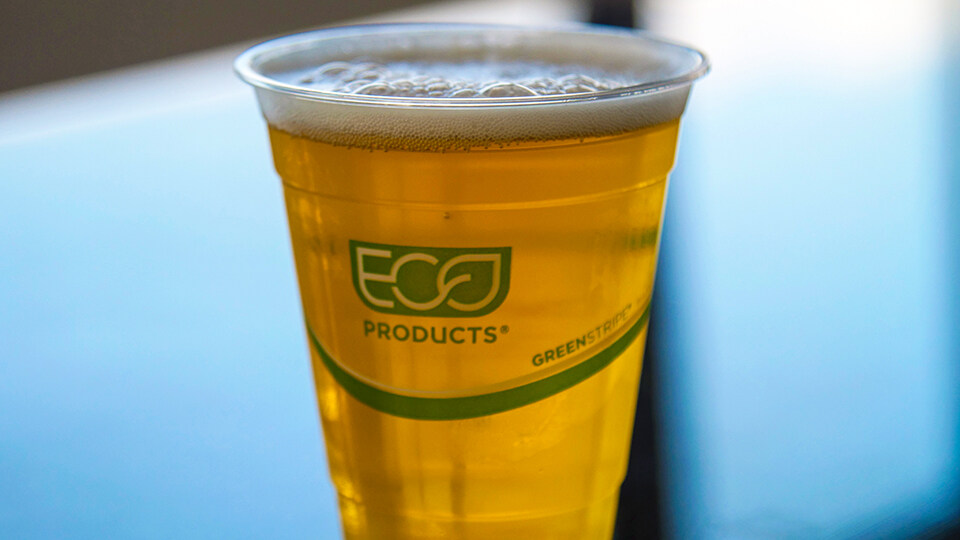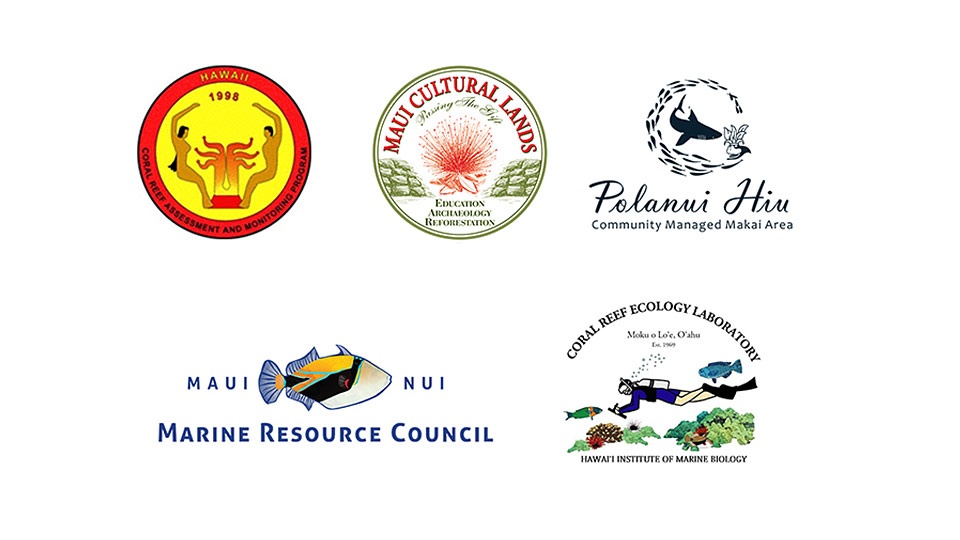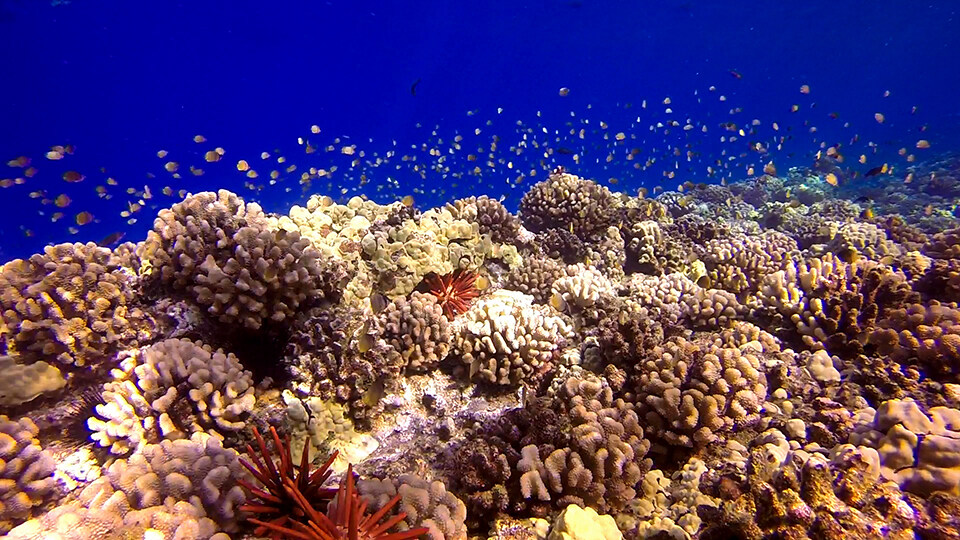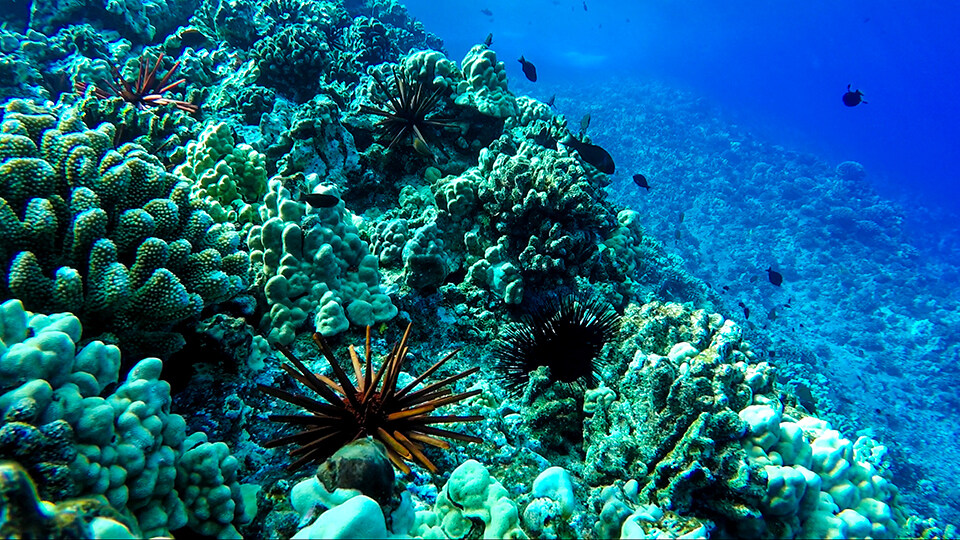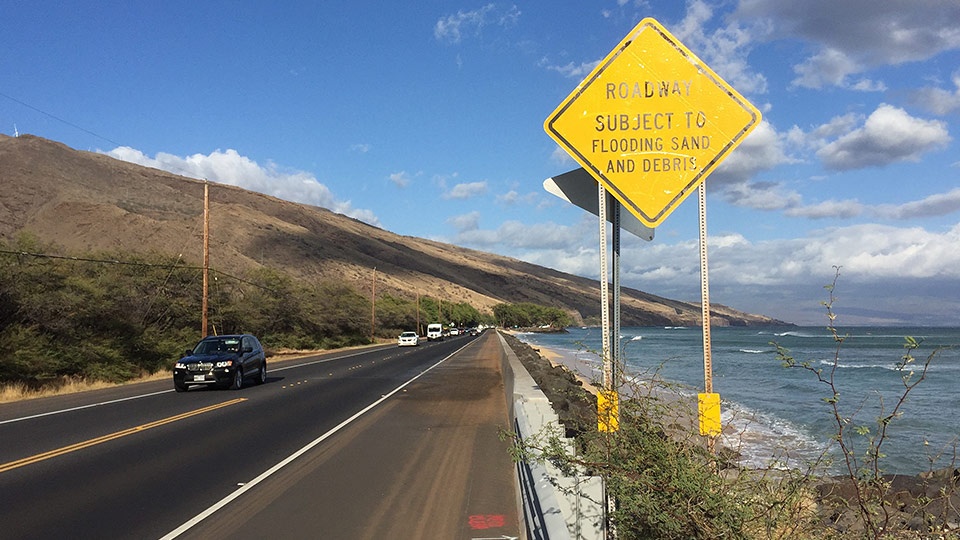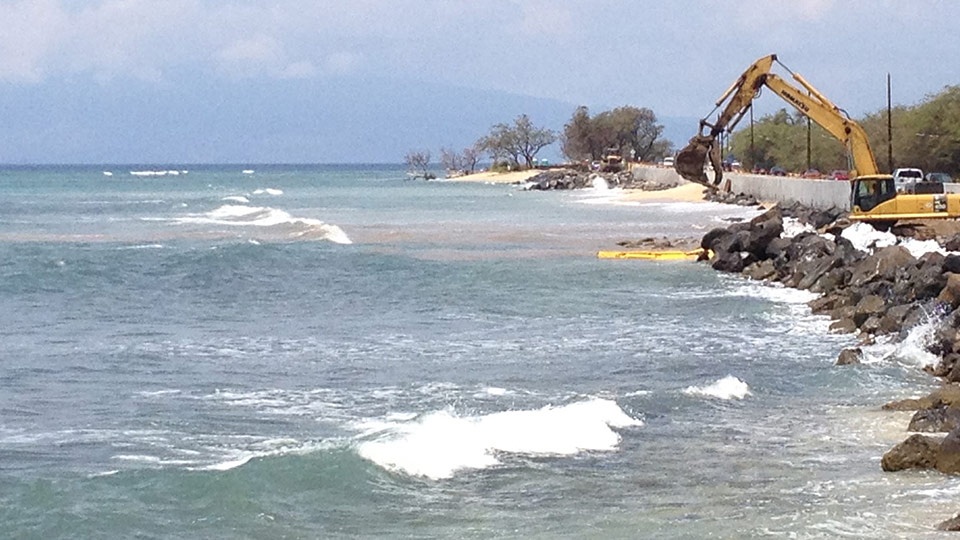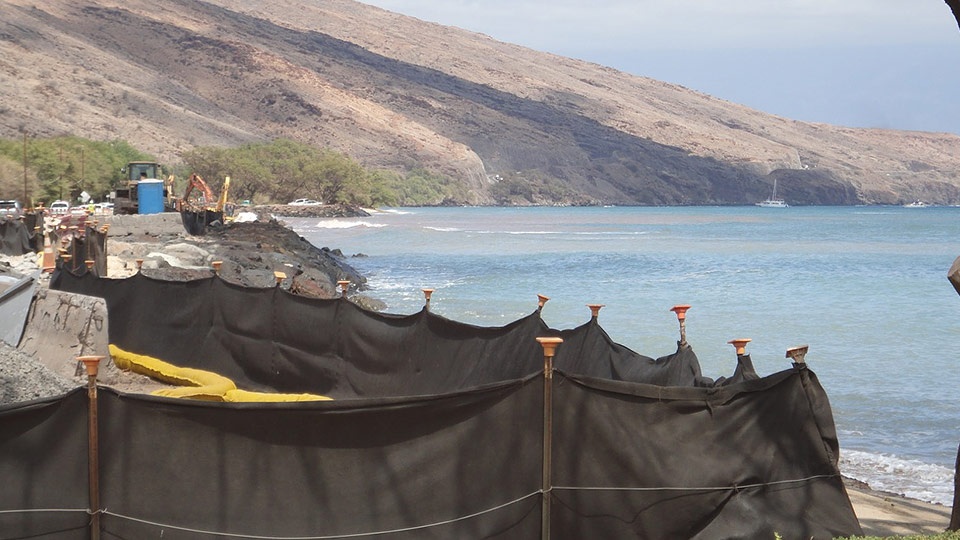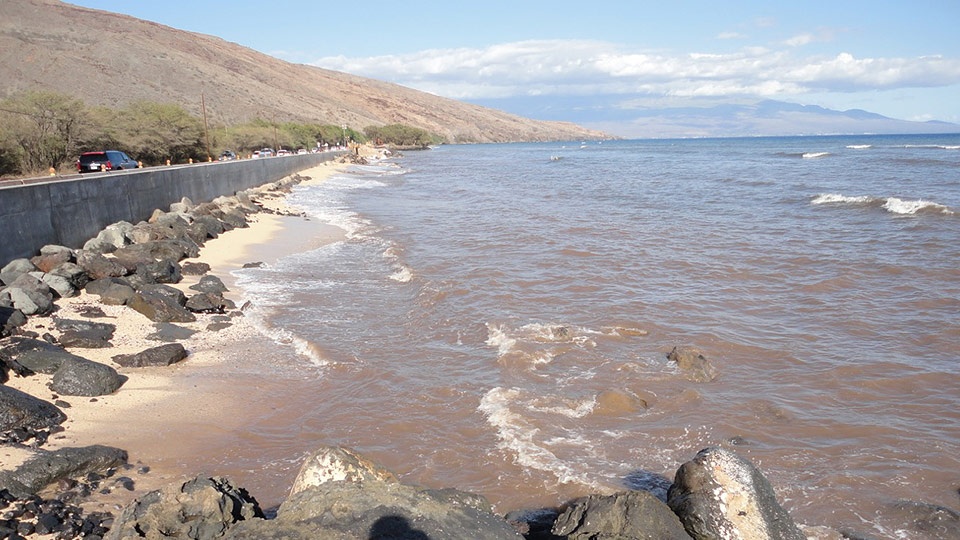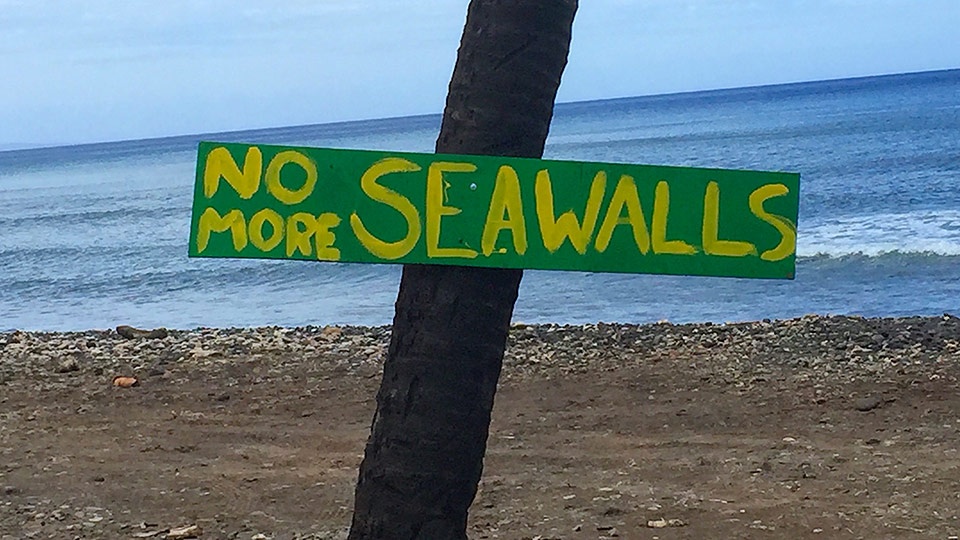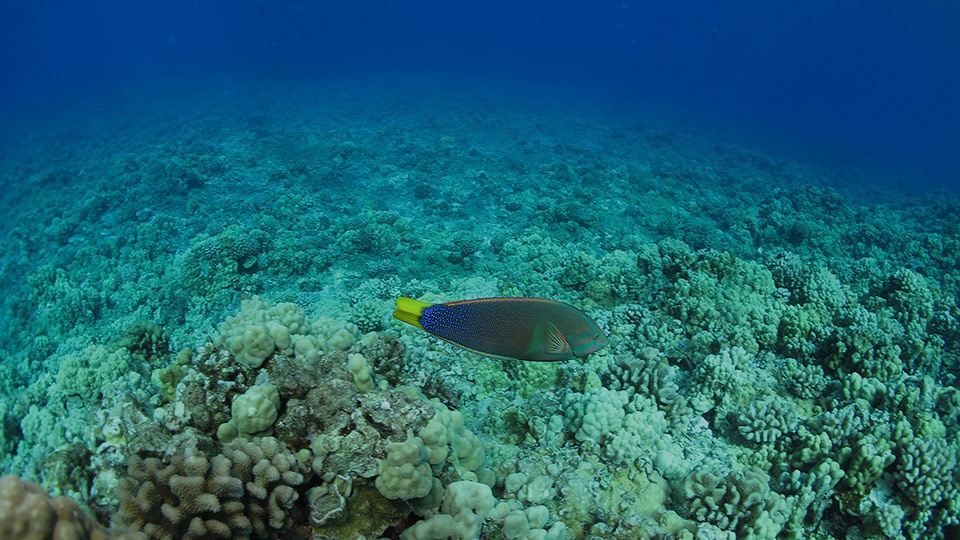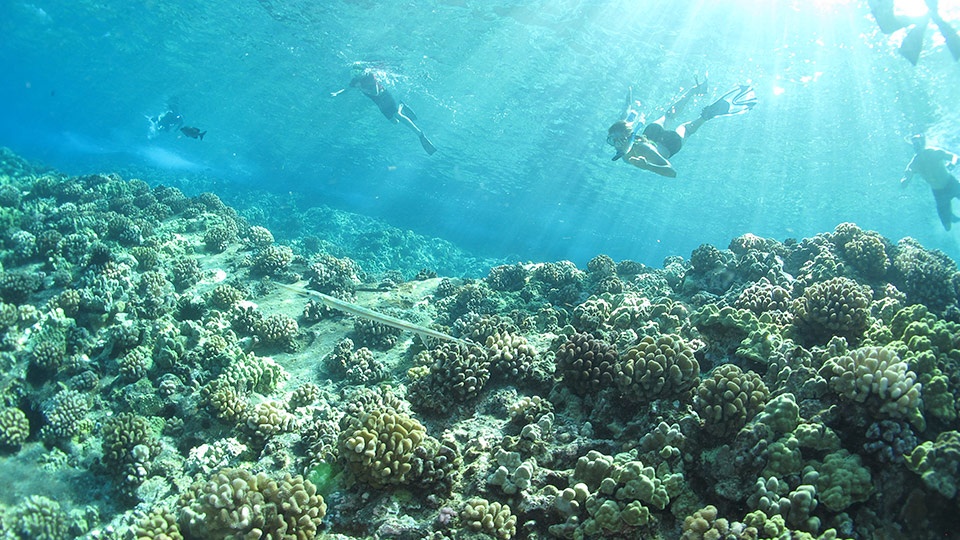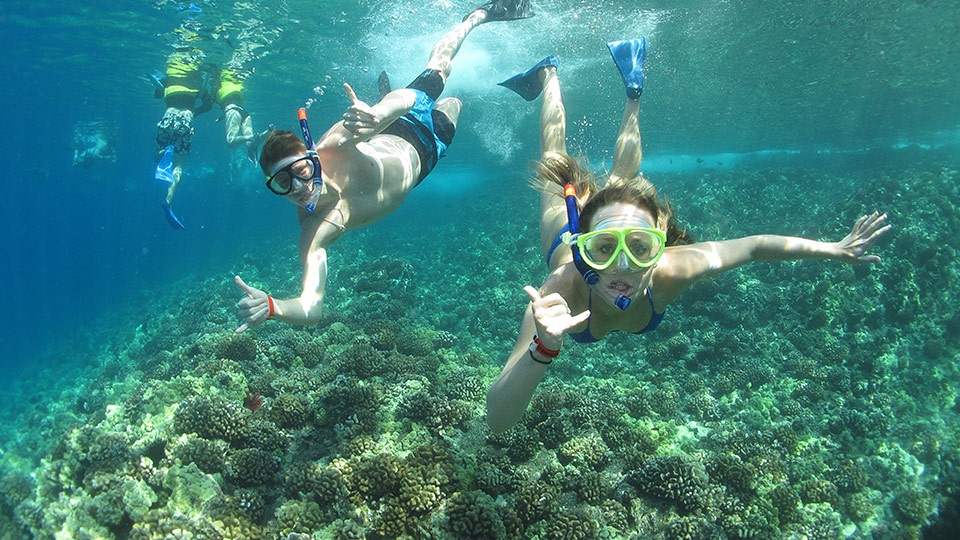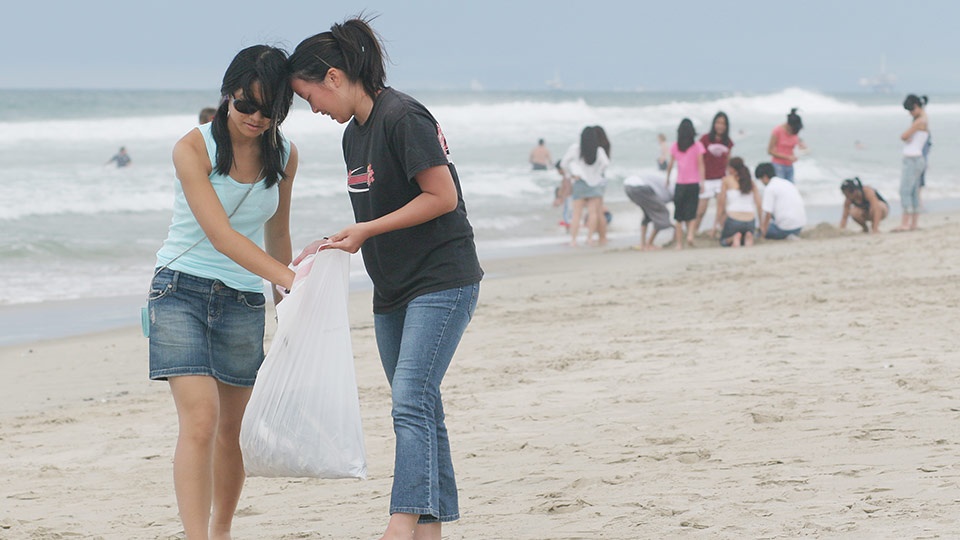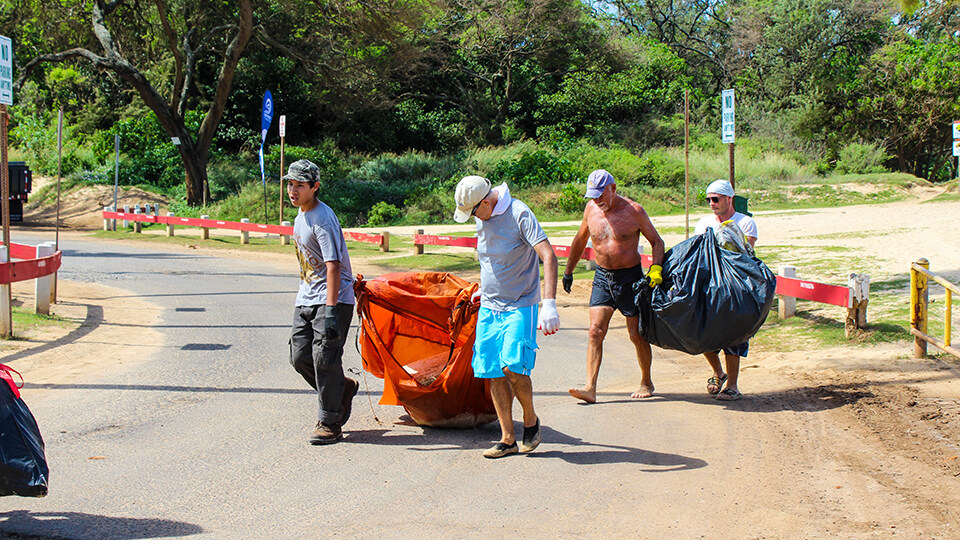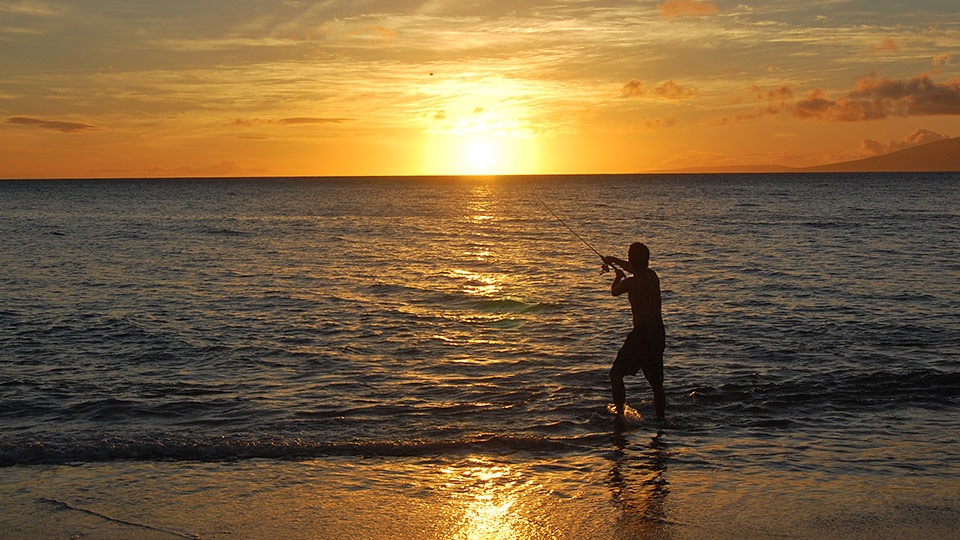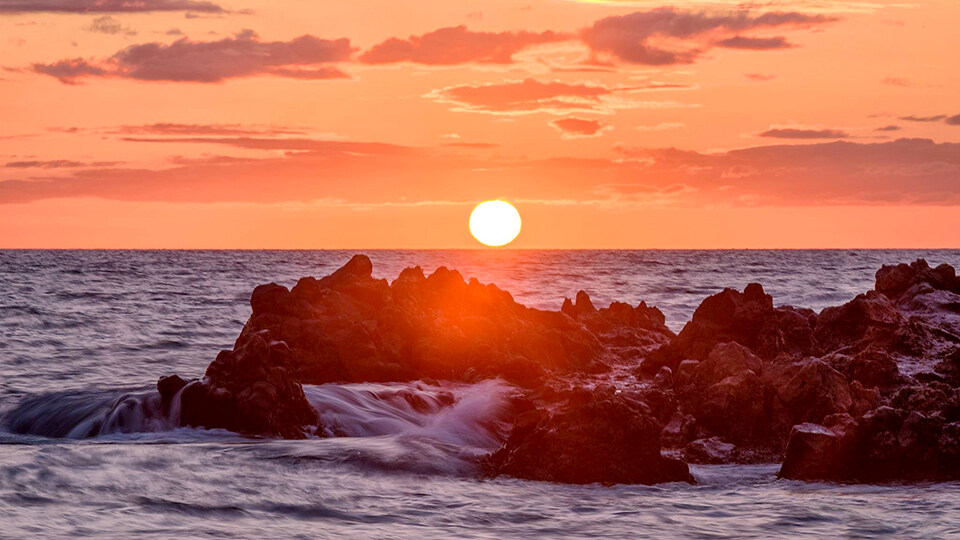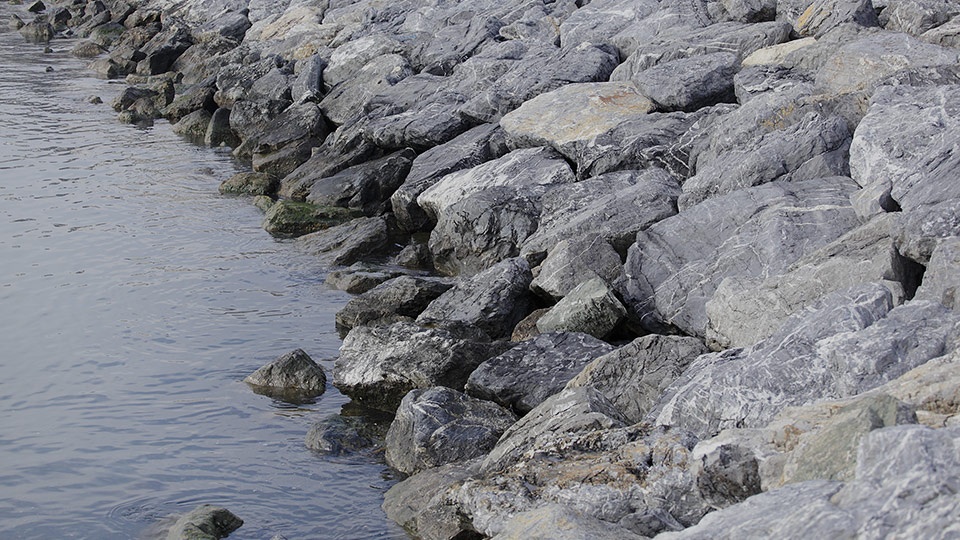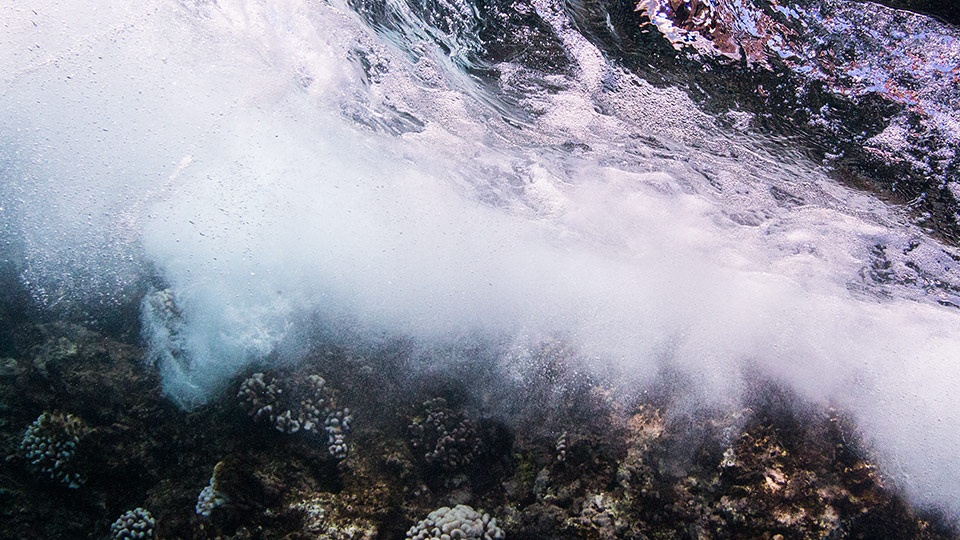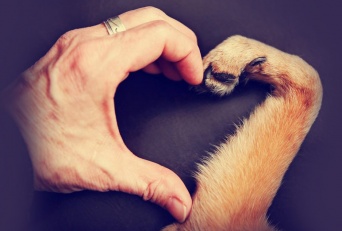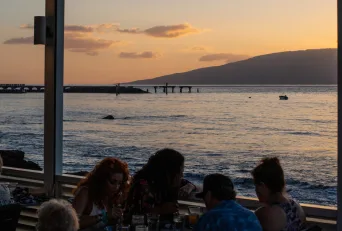How to save
coral reefs
in Hawaii
Our coral reefs are dying. But there is hope! Coral reefs can begin to heal themselves if we make simple changes in our daily lives to allow them to do just that. We’ve outlined some important things that you can do to help.
Understand the Bigger Picture About Coral Reefs
Understand that coral reefs, which act as natural barriers to coastlines, are the basis for an entire community of plants and animals in their environment. These reefs play a crucial role in coastal protection by absorbing wave energy and reducing erosion, and they provide habitat for countless marine species.
In other words, they are ecosystems! Once a coral reef dies, the ecosystem that is built upon it will collapse as the creatures that inhabit it die out or leave, leading to a significant loss of wildlife.
Be Mindful of Sunscreen
As written about in the National Geographic, Huffington Post, and Washington Post, among other notable publications, common ingredients in sunscreen, like oxybenzone, cause damage to coral reefs. These chemicals contribute to coral bleaching and reef damage. As reported by the Washington Post, “measurements of oxybenzone in seawater within coral reefs in Hawaii and the U.S. Virgin Islands found concentrations ranging from 800 parts per trillion to 1.4 parts per million.”
Save the Parrotfish
Why parrotfish? Known in the scientific community as the lawn mowers of the reefs, parrotfish spend up to 90% of their day eating the algae that grows on and smothers coral. They also help by replenishing sand and keeping beaches, well… sandy. Studies show that a large individual parrotfish in Hawaii can poop out over 1 ton of sand annually!
Support Sustainable Businesses
Reef safe and certified eco-tour companies, resorts, and hotels make choices that are best for the environment, from providing reef safe sunscreen to participating in the statewide reef stewardship project. By supporting reef safe businesses, you are promoting sustainable tourism and encouraging other businesses to adopt an environmentally friendly model.
When visiting coral reefs, always be mindful of where you drop your boat anchor or chain to avoid damaging the reef, and practice responsible dive activities. As a diver, your actions can help protect coral reefs and support conservation efforts.
Donate Your Money
There are excellent organizations that are committed to researching and protecting coral reefs and would benefit greatly from your monetary support! The focus of many of these organizations is on critical issues such as restoration, resilience, and the cultivation of healthy corals.
Encourage Politicians to Act
Whether you support regulations for clean water, have reservations about construction as it affects the environment, or have concerns about fishing at national, state, or local levels, it is important to make an effort to have your voice heard. It is up to you whether that means calling or sending a well-written letter to your local politician’s office or signing a petition.
Protect Our Watersheds
To say that watersheds are important would be an understatement. Why are watersheds important? To put it simply, they are required to support life for plants, animals, and humans. Watersheds provide drinking water, protect oceans, mitigate flooding, and support the economy–and those are just several of the amazing purposes that watersheds serve.
Donate Your Time
Your time is a precious gift that you can give at no cost to help the environment! Whenever you’re at the beach, you can do your part by leaving only footprints, as the saying goes.
Take your trash with you when you leave and if you happen to see any trash that isn’t yours, please pick it up and dispose of it properly. Participating in a local beach cleanup is a great way to get involved and make a difference.
Reduce Your Carbon Footprint
By living sustainably you can reduce your carbon footprint and help reverse the effects of global warming. Small, everyday choices like recycling or using reusable bags instead of plastic ones might not seem like much, but changes to your daily life can have a huge impact on the environment.
Keep the Beach Clean of Debris
According to NOAA’s Marine Debris Program, plastic litter and other debris that make their way into the ocean can have devastating effects on coral reefs. Not only do these plastics damage the reefs by falling on them and getting stuck inside the coral, they can also carry invasive species that can travel hundreds of miles and harm local ecosystems.
Understanding the Threats
Coral reefs are among the most valuable and vulnerable ecosystems on our planet, providing habitat for countless marine species and supporting coastal communities worldwide. Yet, these vibrant coral reef ecosystems face a growing list of threats that can harm coral reefs and even kill corals if left unaddressed.
Our coral reefs are in grave danger
We must act now to reverse the effects of damaged and dying coral. If we all do our part, we can save our reefs!
